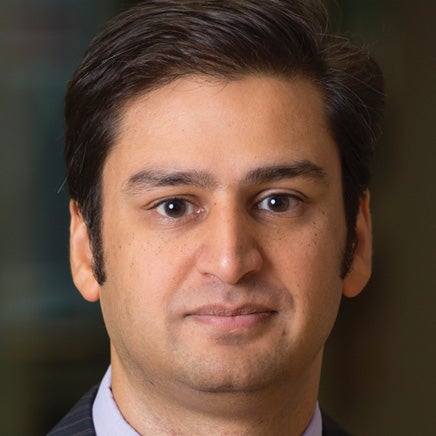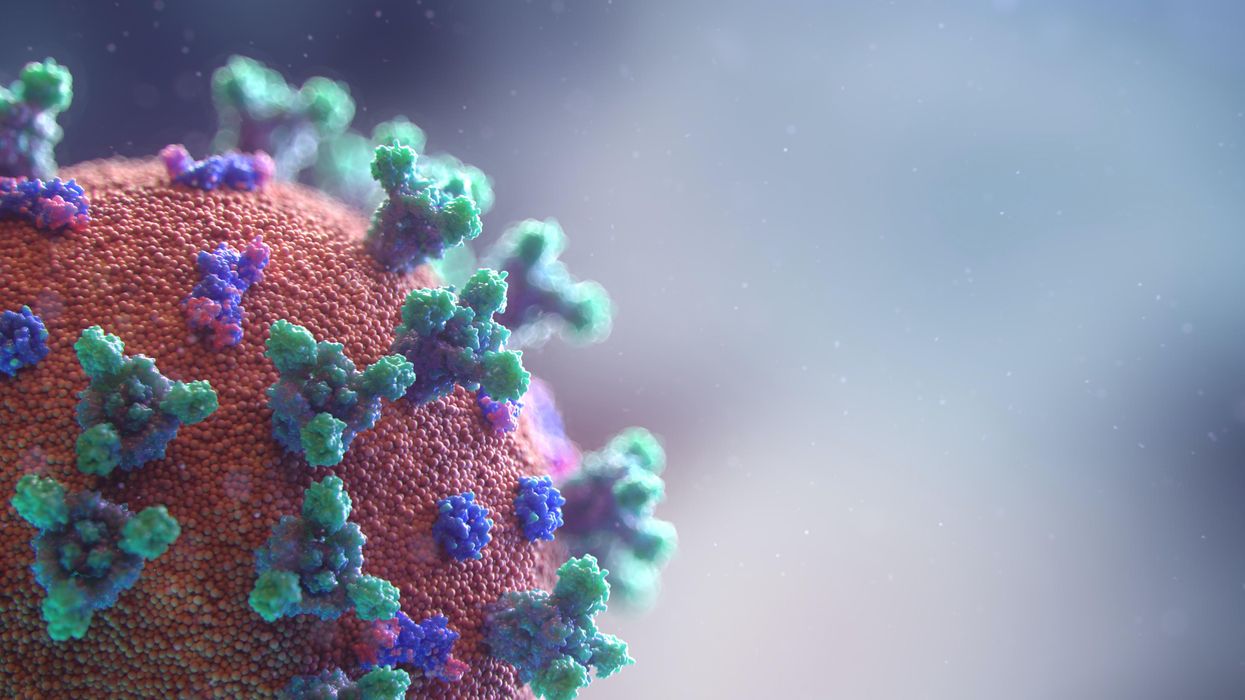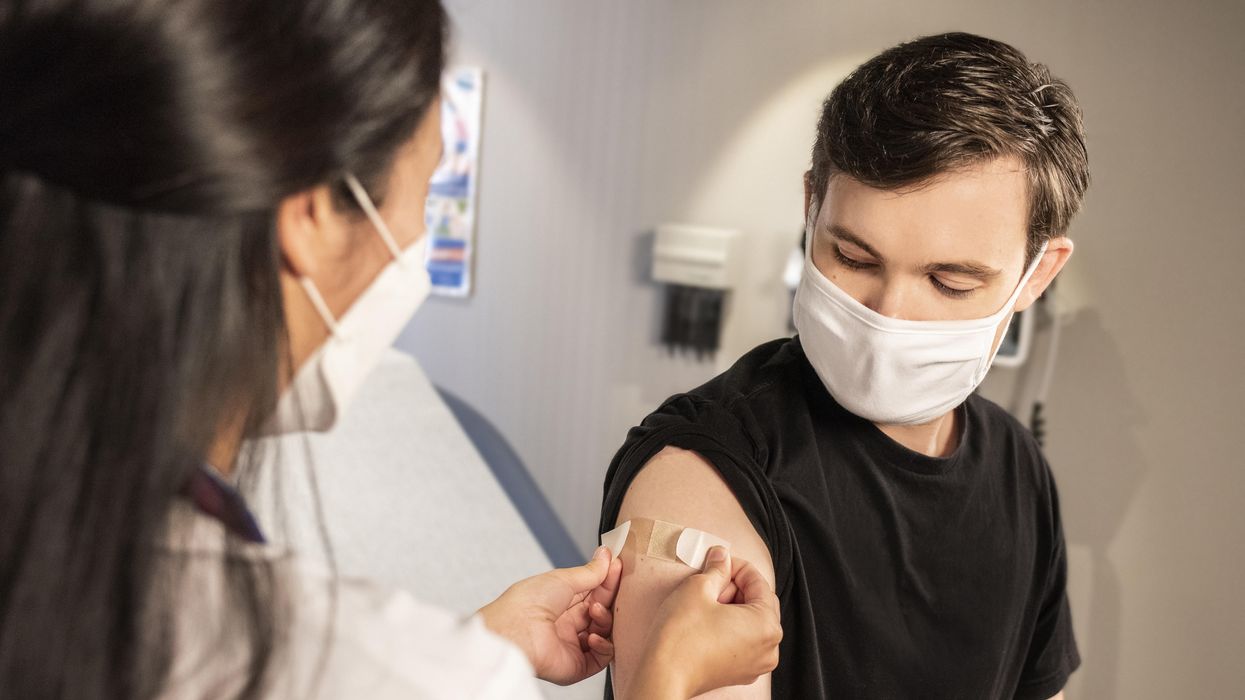In China, Prisoners of Conscience Are Being Murdered for Their Organs to Fuel Transplant Tourism

A somber photo of the Great Wall of China.
Organ transplantation can dramatically improve or save lives. A heart transplant can literally give a person a new lease of life, while a kidney transplant frees the recipient from lengthy spells on dialysis.
A people's tribunal in London has recently found that in China, organs are sourced from prisoners of conscience who are killed on demand to fuel the lucrative organ transplantation market.
To protect the integrity of organ transplantation, there are strict ethical guidelines. When organs are sourced from deceased persons, the donation must be voluntary, donors must die naturally before any organs are taken, and death must not be hastened to provide organs. These ethical guidelines protect donors and provide assurance to transplant recipients that their organs have been sourced ethically.
However, not all countries follow these ethical guidelines. A people's tribunal in London has recently found that in China, organs are sourced from prisoners of conscience who are killed on demand to fuel the lucrative organ transplantation market. This conclusion, reported at the United Nations Human Rights Council on September 24, was not reached lightly.
The independent China Tribunal, made up of four human rights lawyers, one surgeon with transplant experience, an academic who specialises in China studies and a businessman with human rights interests, spent over a year looking at written materials and heard evidence from over 50 witnesses in five days of hearings. Their grim conclusion, that prisoners of conscience are murdered for their organs, confirms the findings of earlier investigations.
Questions first arose over China's transplant system when the numbers of transplants rose dramatically after 2000. Transplant capacity rapidly increased; new infrastructure was built and staff were trained. Hospital websites offered livers, hearts and kidneys available in a matter of days or weeks, for a price. Foreigners were encouraged to come to China to avoid lengthy transplant waiting lists in their home countries.
At the time, it was a mystery as to how China had a ready supply of organs, despite having no volunteer donation system. Eventually, in 2006, the Chinese government stated that organs were removed from prisoners who had been found guilty and sentenced to the death penalty. But this explanation did not ring true. Death row prisoners often have poor health, including high rates of infectious diseases, making them poor candidates for donation. By contrast, the organs offered for sale were promised to be healthy.
In 2006, the first clues about the source of the organs emerged. A woman called Annie reported that her surgeon husband had been present during organ removal from Falun Gong practitioners who were still breathing as the scalpels cut into them. A subsequent investigation by two Canadian human rights lawyers examined multiple sources of evidence, concluding that murdered Falun Gong practitioners were indeed the source of the organs.
The evidence included testimony from practitioners who had been imprisoned, tortured, and later released. During imprisonment, many practitioners reported blood and other medical tests examining the health of their organs—tests that were not performed on any other prisoners. Phone calls made to Chinese hospitals by investigators posing as patients were offered rapid access to fresh organs from Falun Gong practitioners. The organs were guaranteed to be healthy, as the practice forbids smoking tobacco and drinking alcohol.
Since 2006, evidence has continued to accumulate. China has a huge transplant industry and no plausible source of voluntary organ donations. Unlike the rest of the world, Chinese waiting times remain very short. Foreigners continue to come to China to avoid lengthy waiting lists. Prisoners of conscience, including Tibetans and Uyghurs as well as Falun Gong practitioners, are still being imprisoned and medically tested.
The Chinese government continues to deny these crimes, claiming that there is a volunteer donor system in place.
The China Tribunal heard from Uyghur witnesses who had recently been inside the notorious labour camps (also called "re-education" centers) in Xin Xiang. The witnesses reported terrible conditions, including overcrowding and torture, and were forced to have medical examinations. They saw other prisoners disappear without explanation following similar medical tests. As recently as 2018, doctors in Chinese hospitals were promising potential patients healthy Falun Gong organs in taped phone calls.
The Chinese government continues to deny these crimes, claiming that there is a volunteer donor system in place. In the Chinese system, prisoners are counted as volunteers.
China's forced organ harvesting from prisoners of conscience has international implications. A recent study found that most published Chinese transplant research is based on organs sourced from prisoners. International ethical guidance prohibits taking organs from prisoners and prohibits publication of research based on transplanted material from prisoners. The authors of that study called for retractions of the papers, some of which are in well-known scientific journals. So far Transplantation and PLOS One are among the journals that have already retracted over twenty articles in response. On questioning from the editors, the authors of the papers failed to respond or could not verify that the organs in the transplant research came from volunteers.
The international community has a moral obligation to act together to stop forced organ harvesting in China.
The China Tribunal concluded that forced organ harvesting remains China's main source of transplant organs. In their view, the commission of Crimes Against Humanity against the Uyghurs and Falun Gong has been proved beyond reasonable doubt. By their actions, the Chinese government has turned a life-saving altruistic practice into our worst nightmare. The international community has a moral obligation to act together to stop forced organ harvesting in China, and end these crimes against humanity.
Sept. 13th Event: Delta, Vaccines, and Breakthrough Infections
A visualization of the virus that causes COVID-19.
This virtual event will convene leading scientific and medical experts to address the public's questions and concerns about COVID-19 vaccines, Delta, and breakthrough infections. Audience Q&A will follow the panel discussion. Your questions can be submitted in advance at the registration link.
DATE:
Monday, September 13th, 2021
12:30 p.m. - 1:45 p.m. EDT
REGISTER:

Dr. Amesh Adalja, M.D., FIDSA, Senior Scholar, Johns Hopkins Center for Health Security; Adjunct Assistant Professor, Johns Hopkins Bloomberg School of Public Health; Affiliate of the Johns Hopkins Center for Global Health. His work is focused on emerging infectious disease, pandemic preparedness, and biosecurity.

Dr. Nahid Bhadelia, M.D., MALD, Founding Director, Boston University Center for Emerging Infectious Diseases Policy and Research (CEID); Associate Director, National Emerging Infectious Diseases Laboratories (NEIDL), Boston University; Associate Professor, Section of Infectious Diseases, Boston University School of Medicine. She is an internationally recognized leader in highly communicable and emerging infectious diseases (EIDs) with clinical, field, academic, and policy experience in pandemic preparedness.

Dr. Akiko Iwasaki, Ph.D., Waldemar Von Zedtwitz Professor of Immunobiology and Molecular, Cellular and Developmental Biology and Professor of Epidemiology (Microbial Diseases), Yale School of Medicine; Investigator, Howard Hughes Medical Institute. Her laboratory researches how innate recognition of viral infections lead to the generation of adaptive immunity, and how adaptive immunity mediates protection against subsequent viral challenge.
 Dr. Marion Pepper, Ph.D., Associate Professor, Department of Immunology, University of Washington. Her lab studies how cells of the adaptive immune system, called CD4+ T cells and B cells, form immunological memory by visualizing their differentiation, retention, and function.
Dr. Marion Pepper, Ph.D., Associate Professor, Department of Immunology, University of Washington. Her lab studies how cells of the adaptive immune system, called CD4+ T cells and B cells, form immunological memory by visualizing their differentiation, retention, and function.
This event is the third of a four-part series co-hosted by Leaps.org, the Aspen Institute Science & Society Program, and the Sabin–Aspen Vaccine Science & Policy Group, with generous support from the Gordon and Betty Moore Foundation and the Howard Hughes Medical Institute.
Kira Peikoff was the editor-in-chief of Leaps.org from 2017 to 2021. As a journalist, her work has appeared in The New York Times, Newsweek, Nautilus, Popular Mechanics, The New York Academy of Sciences, and other outlets. She is also the author of four suspense novels that explore controversial issues arising from scientific innovation: Living Proof, No Time to Die, Die Again Tomorrow, and Mother Knows Best. Peikoff holds a B.A. in Journalism from New York University and an M.S. in Bioethics from Columbia University. She lives in New Jersey with her husband and two young sons. Follow her on Twitter @KiraPeikoff.
Don't Panic Over Waning Antibodies. Here's Why.
A health care worker places a bandaid on the arm of a man who has just been vaccinated.
Since the Delta variant became predominant in the United States on July 7, both scientists and the media alike have been full of mixed messages ("breakthrough infections rare"; "breakthrough infections common"; "vaccines still work"; "vaccines losing their effectiveness") but – if we remember our infectious diseases history- one thing remains clear: immunity is the only way to get through a pandemic.
What Happened in the Past
The 1918 influenza pandemic was far the deadliest respiratory virus pandemic recorded in recent human history with over 50 million deaths (maybe even 100 million deaths, or 3% of the world's population) worldwide. Although they used some of the same measures we are using now (masks, distancing, event closures, as neither testing nor a vaccine existed back then), the deaths slowed only after enough of the population had either acquired immunity through natural infection or died. Indeed, the first influenza vaccine was not developed until 1942, more than 20 years later. As judged by the amount of suffering and death from 1918 influenza (and the deadly Delta surge in India in spring 2021), natural immunity is obviously a terrible way to get through a pandemic.
Similarly, measles was a highly transmissible respiratory virus that led to high levels of immunity among adults who were invariably exposed as children. However, measles led to deaths each year among the nonimmune until a vaccine was developed in 1963, largely restricting current measles outbreaks in the U.S. now to populations who decline to vaccinate. Smallpox also led to high levels of immunity through natural infection, which was often fatal. That's why unleashing smallpox on a largely nonimmune population in the New World was so deadly. Only an effective vaccine – and its administration worldwide, including among populations who declined smallpox vaccine at first via mandates – could control and then eventually eradicate smallpox from Earth.
Fully vaccinated people are already now able to generate some antibodies against all the variants we know of to date, thanks to their bank of memory B cells.
The Delta variant is extremely transmissible, making it unlikely we will ever eliminate or eradicate SARS-CoV-2. Even Australia, which had tried to maintain a COVID-zero nation with masks, distancing, lockdowns, testing and contact tracing before and during the vaccines, ended a strategy aimed at eliminating COVID-19 this week. But, luckily, since highly effective and safe vaccines were developed for COVID-19 less than a year after its advent on a nonimmune population and since vaccines are retaining their effectiveness against severe disease, we have a safe way out of the misery of this pandemic: more and more immunity. "Defanging" SARS-CoV-2 and stripping it of its ability to cause severe disease through immunity will relegate it to the fate of the other four circulating cold-causing coronaviruses, an inconvenience but not a world-stopper.
Immunity Is More Than Antibodies
When we say immunity, we have to be clear that we are talking about cellular immunity and immune memory, not only antibodies. This is a key point. Neutralizing antibodies, which prevent the virus from entering our cells, are generated by the vaccines. But those antibodies will necessarily wane over time since we cannot keep antibodies from every infection and vaccine we have ever seen in the bloodstream (or our blood would be thick as paste!). Vaccines with shorter intervals between doses (like Pfizer vaccines given 3 weeks apart) are likely to have their antibodies wane sooner than vaccines with longer intervals between doses (like Moderna), making mild symptomatic breakthroughs less likely with the Moderna vaccine than the Pfizer during our Delta surge, as a recent Mayo Clinic study showed.
Luckily, the vaccines generate B cells that get relegated to our memory banks and these memory B cells are able to produce high levels of antibodies to fight the virus if they see it again. Amazingly, these memory B cells will actually produce antibodies adapted against the COVID variants if they see a variant in the future, rather than the original antibodies directed against the ancestral strain. This is because memory B cells serve as a blueprint to make antibodies, like the blueprint of a house. If a house needs an extra column (or antibodies need to evolve to work against variants), the blueprint will oblige just as memory B cells will!
One problem with giving a 3rd dose of our current vaccines is that those antibodies won't be adapted towards the variants. Fully vaccinated people are already now able to generate some antibodies against all the variants we know of to date, thanks to their bank of memory B cells. In other words, no variant has evolved to date that completely evades our vaccines. Memory B cells, once generated by either natural infection or vaccination, should be long-lasting.
If memory B cells are formed by a vaccine, they should be as long-lasting as those from natural infection per various human studies. A 2008 Nature study found that survivors of the 1918 influenza pandemic were able to produce antibodies from memory B cells when exposed to the same influenza strain nine decades later. Of note, mild infections (such as the common cold from the cold-causing coronaviruses called 229E, NL63, OC43, and HKU1) may not reliably produce memory B cell immunity like more severe infections caused by SARS-CoV-2.
Right about now, you may be worrying about a super-variant that might yet emerge to evade all our hard-won immune responses. But most immunologists do not think this is very realistic because of T cells. How are T cells different from B Cells? While B cells are like the memory banks to produce antibodies when needed (helped by T cells), T cells will specifically amplify in response to a piece of the virus and help recruit cells to attack the pathogen directly. We likely have T cells to thank for the vaccine's incredible durability in protecting us against severe disease. Data from La Jolla Immunology Institute and UCSF show that the T cell response from the Pfizer vaccine is strong across all the variants.
Think of your spike protein as being comprised of 100 houses with a T cell there to cover each house (to protect you against severe disease). The variants have around 13 mutations along the spike protein so 13 of those T cells won't work, but there are over 80 T cells remaining to protect your "houses" or your body against severe disease.
Although these are theoretical numbers and we don't know exactly the number of T cell antigens (or "epitopes") across the spike protein, one review showed 1400 across the whole virus, with many of those in the spike protein. Another study showed that there were 87 epitopes across the spike protein to which T cells respond, and mutations in one of the variants (beta) took those down to 75. The virus cannot mutate indefinitely in its spike protein and still retain function. This is why it is unlikely we will get a variant that will evade the in-breadth, robust response of our T cells.
Where We Go From Here
So, what does this mean for getting through this pandemic? Immunity and more immunity. For those of us who are vaccinated, if we get exposed to the Delta variant, it will boost our immune response although the memory B cells might take 3-5 days to make new antibodies, which can leave us susceptible to a mild breakthrough infection. That's part of the reason the CDC put back masks for the vaccinated in late July. For those who are unvaccinated, immunity will be gained from Delta but often through terrible ways like severe disease.
The way for the U.S. to determine the need for 3rd shots among those who are not obviously immunocompromised, given the amazing immune memory generated by the vaccines among immunocompetent individuals, is to analyze the cases of the ~6000 individuals who have had severe breakthrough infections among the 171 million Americans fully vaccinated. Define their co-morbidities and age ranges, and boost those susceptible to severe infections (examples could include older people, those with co-morbidities, health care workers, and residents of long-term care facilities). This is an approach likely to be taken by the CDC's Advisory Committee on Immunization Practices.
If immunity is the only way to get through the pandemic and if variants are caused mostly by large populations being unvaccinated, there is not only a moral and ethical imperative but a practical imperative to vaccinate the world in order to keep us all safe. Immunocompetent Americans can boost their antibodies, which may enhance their ability to avoid mild breakthrough infections, but the initial shots still work well against the most important outcomes: hospitalizations and deaths.
There has been no randomized, controlled trial to assess whether three shots vs. two shots meaningfully improve those outcomes. While we ought to trust immune memory to get the immunocompetent in the United States through, we can hasten the end of this pandemic by providing surplus vaccines to poor countries to combat severe disease. Doing so would not only revitalize the role of the U.S. as a global health leader – it would save countless lives.

